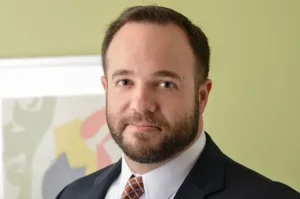By Greg Care
 What happens when a residency program refuses to abide by the National Resident Matching Program’s (NRMP) decision to deny the program’s waiver for a waiver of its Match commitment? As one recent decision out of New York teaches, there are options to legally challenge the program’s non-compliance, but it can come with procedural complications.
What happens when a residency program refuses to abide by the National Resident Matching Program’s (NRMP) decision to deny the program’s waiver for a waiver of its Match commitment? As one recent decision out of New York teaches, there are options to legally challenge the program’s non-compliance, but it can come with procedural complications.
The Appellate Division of a New York Supreme Court addressed a unique scenario like this in Khass v. New York Presbyterian Brooklyn Methodist Hospital, 2023 N.Y. Slip Op. 00851, __ N.Y.S.3d __ (2023).
In 2019, Dr. Walid Khass matched into a pediatrics residency program at New York Presbyterian (NYP) but, soon thereafter, the program sought a waiver of the Match commitment because it learned after the Match that Dr. Khass “made social media posts that were, among other things, anti-Semitic, and that he had been subject to disciplinary action and placed on a leave of absence or suspended from [his medical school] for a period of three months.” The NRMP denied the waiver and rejected the program’s reconsideration request. Nonetheless, the program still refused to allow Dr. Khass to begin his training.
Dr. Khass filed suit against NYP to accept him into its program and, on February 13, 2020, the Kings County Supreme Court ordered NYP to accept Dr. Khass. The court reasoned that Dr. Khass was entitled to that position because NYP and Dr. Khass executed their respective NRMP Match Participation Agreements, Dr. Khass was matched to NYP pursuant to that agreement, and that the NRMP had conclusively denied the waiver request that only it could resolve. To afford Dr. Khass relief, the court converted his request for preliminary injunction to a petition for mandamus.
NYP appealed that ruling and won on a technical point that is largely peculiar to New York law. While the Appellate Division disagreed with the lower court converting the action to a petition for mandamus, the more impactful portion of the opinion held that Dr. Khass was required to first pursue his claims through a somewhat arcane Public Health and Health Planning Council (PHHPC) grievance process. This process begins with a PHHPC investigation after which, a resident can proceed to court to seek an injunction. Dr. Khass argued unsuccessfully that he was not subject to the process because he had not yet begun his residency; the court instead held that Dr. Khass was a physician seeking relief from a denial of privileges, thus requiring him to exhaust the PHHPC grievance process. Because Dr. Khass had not done this, the Appellate Division found that Dr. Khass was not permitted to seek redress in the courts and, thus, the lower court was not authorized to provide the relief it did.
This case provides a number of useful lessons.
First, it gives us some insight into what does and does not merit a waiver by the NRMP. Court documents suggest NYP claimed both eligibility and extreme hardship as bases for its waiver request. NYP argued to the lower court that “between 2012 and 2017, Dr. Khass made a significant number of anti-Semitic, anti-gay, and/or racially insensitive social media posts, some of which condoned and/or encourage violence which rendered Dr. Khass ineligible to train at the Hospital. Moreover, the Hospital asserts that these posts would cause serious and extreme hardship on the Program because it would interfere with the Program’s ability to serve a patient population consisting of a large number of Orthodox Jews and would render it unable to conduct a respectful, inclusive work environment.” Presumably, NYP made these same points to the NRMP, but the NRMP denied the waiver and subsequent reconsideration request. Given the severity of the allegations, it is notable that the NRMP denied the waiver. NYP’s court filings claimed that the NRMP ultimately reversed its waiver decision in June 2020 as part of a settlement with NYP.
Second, the case illustrates the potential legal options in NRMP waiver scenarios. One of those scenarios is how a resident confronts a program’s refusal to abide by the NRMP’s waiver denial. Dr. Khass’s case may be the only reported court decision concerning a resident’s attempt to enforce the NRMP’s Match Participation Agreement. It is unclear from the various court opinions whether NYP and Dr. Khass signed a training agreement, as is typical following the Match, which would be the more common contract to seek to enforce.
The other scenario relates to the availability of court relief from the NRMP’s waiver decisions. The NRMP’s current policy notes that waiver decisions are final and not subject to arbitration or litigation, which is a change from the version of the policy in effect circa 2019 that simply said waiver decisions were not arbitrable. Indeed, this case may have been what prompted the NRMP to prevent the parties from seeking judicial scrutiny. The court records in this case show that NYP sued the NRMP in court, claiming that its decision was arbitrary and capricious. This issue of access to the courts regarding disputes with the NRMP continues to cause me great concern, as the NRMP now reserves for itself unchecked discretion even when it fails to faithfully apply its standards. I remain interested in waiver cases that might present an opportunity to challenge this.
And, finally, this case points out the procedural hurdles and other complications residents must navigate when challenging breaches of contract and discipline. New York’s PHHPC grievance process is unique. While not requiring exhaustion of a third-party process before commencing litigation, California’s recently passed Higher Education Employer-Employee Relations Act affords residents a second review of disciplinary action in non-“academic or clinical matters.” Navigating these hurdles requires knowledge and experience.
* Content on this website, including blog articles, are proprietary and copyright protected. If you wish to use all or part of a blog article, we request that you properly attribute the work and include a link to the Brown, Goldstein & Levy webpage on which it appears.
